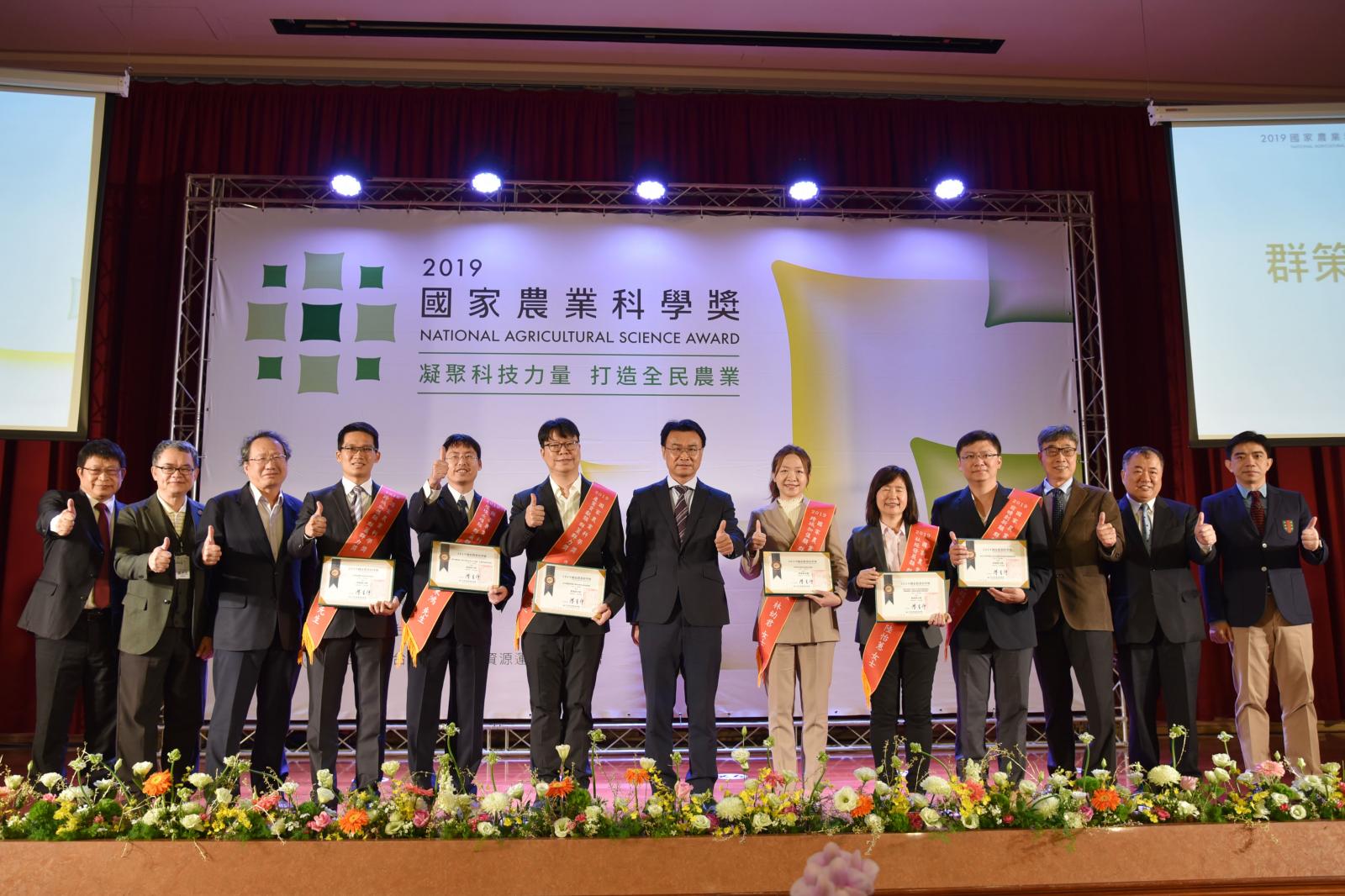Who will win the 2019 National Agricultural Science Award? Results to be revealed today
In order to promote cross-disciplinary innovation and upgrade Taiwan’s agricultural science R&D capabilities, the Council of Agriculture (COA) is holding the first ever “National Agricultural Science Award” activity. The National Agricultural Science Award is divided into five main categories: “contributions to industry,” “socio-economic development,” “forward-looking innovation,” “cross-disciplinary value-added,” and “environmental sustainability.” This year a total of 85 outstanding research projects were recommended for participation in the award event, with a total of 17 research teams being nominated. Some of this research is already being applied in industry, with remarkable results. The presentation ceremony for the 1st National Agricultural Science Award will be held today (December 30) in the assembly hall on the fifth floor of the COA building. COA Minister Chen Chi-chung will personally preside over the event, which will recognize the outstanding achievements of award-winning and nominated research teams.

Highest prize for agricultural science research in the nation; emphasis placed on three main features: cross-disciplinary integration, team accomplishments, and three-year project funding
The COA states that the 1st “National Agricultural Science Award” has been defined as the highest award at the national level for agricultural science and technology R&D. The COA emphasizes three main features of the award: cross-disciplinary integration, team accomplishments, and three-year project funding. Unlike previous awards for agricultural science research, the National Agricultural Science Award is aimed at encouraging “cross-disciplinary” innovation and “socio-economic development.” Around the world agricultural science and technology (S&T) has moved from the past focus on production to cross-disciplinary technological innovation. In particular, the development of mobile technology, the Internet of Things, and data analysis have accelerated cross-field integration. As a result, the main R&D trends are now in food testing, precision agriculture, decision support systems, and biopharmaceuticals. The nominated teams for the 2019 awards have all produced excellent results in the above-mentioned cross-disciplinary integrated research areas.
The COA points out that the National Agricultural Science Award does not focus on publishing of academic papers, but rather on the goal of solving agricultural problems, encouraging researchers to work co-operatively in teams and be solution-oriented as they dedicate themselves to producing scientific research results that make a substantive contribution to agriculture. At the same time the award emphasizes cross-disciplinary teamwork and not individual accomplishment. In resonance with current trends in technology R&D, researchers no longer need to work alone, but are encouraged to cooperate in teams to inspire creativity and contributions to industry. Award-winning teams receive three years of funding for their projects, to enable long-term promotion and use of research results and technological applications.
US$70 million in edamame exports; achievements in rapid screening mass spectrometry techniques, smart fishing vessel monitoring technology
The edamame industry team, which was nominated in the category of “contributions to industry,” conducted R&D into new edamame varieties and guidance of special zones for export-oriented production. Not only has the industry been licensed to use three varieties of edamame, already the team’s research has earned NT$19.29 million in royalties from home and abroad. Moreover, their edamame earns over US$70 million per year from exports, meaning that Taiwan edamame (nicknamed “green gold”) is making its presence felt on dining tables around the world.
The team developing new generation fishing vessel monitoring technology, combining the fishing industry with information engineering, has used intelligent information technology to make it possible to provide the location of fishing vessels and the location and total volume of catch in real time regardless of weather, enabling the authorities to follow events in real time and warn vessels of any infringements of the law. Through the application of this R&D and the joint efforts of the COA and fishing industry organizations, in June of this year (2019) Taiwan was finally removed from the European Union’s “yellow card” list for fishing, securing more than NT$40 billion in income from long-range fishing operations.

Encouraging participation by more cross-disciplinary talent, manifesting Taiwan’s agricultural science R&D capabilities
The academic influence of Taiwan agricultural science is above the world average. But it is often difficult to rely on knowledge from a single field to address issues that are more complex and multi-faceted than in the past. The COA stresses that the 2019 National Agricultural Science Award specially focuses on rewarding the “research team” model in order to encourage even more cross-disciplinary talent to participate in agricultural science research in Taiwan to resolve the difficulties and challenges faced by agriculture. The hope is to find outstanding research teams in Taiwan to actively tackle areas of scientific study that require cross-disciplinary integration and innovation and offer potential for the future. The COA states that it has two aims for the National Agricultural Science Award. The first is to encourage the solving of basic issues related to agricultural infrastructure, such as manpower demographics, scale of farming, adjustment of production and marketing, sales channels, and cold chains. The COA trusts that Taiwan agriculture will be competitive so long as construction of basic infrastructure can be fully addressed. The second is that through the substantive encouragement provided by the National Agricultural Science Award scientists will use cross-disciplinary research and cutting edge S&T to resolve agriculture-related problems caused by global political, economic, and environmental change, making it possible for scientific research to make substantive contributions to resolving agricultural problems in Taiwan and enabling agriculture to take another big step forward.
